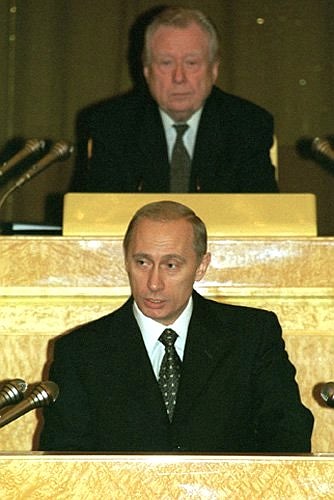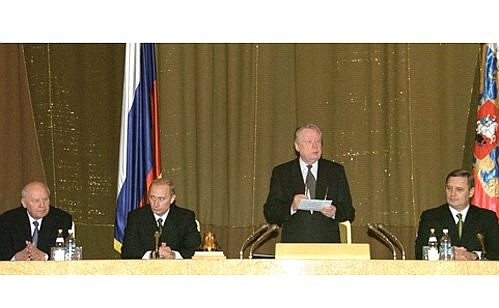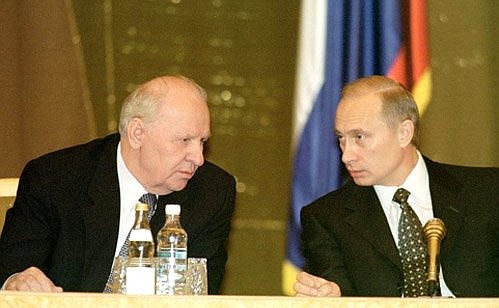The Constitutional Court was a body of the authorities’ self-limitation, Mr Putin said in his address. The emergent Russian ruling system dared to limit itself deliberately and with full accountability. As Mr Putin said, the Constitutional Court could limit both legislative and executive agencies proceeding from the law. On occasion, it gave a firm rebuff to politicians who proceeded from political expediency to the detriment of the law.
Mr Putin acknowledged that the Constitutional Court had travelled a tortuous road. Many attempts were made to use it as the scene of political contention but the principle of independence and non-interference in politics eventually won through.
The President regarded every citizen’s opportunity to file a complaint with the Constitutional Court as its most important function.
All its powers had proved necessary to the people, he said.
The Constitutional Court started work on October 30, 1991, after the 5th Congress of People’s Deputies of the Russian Federation elected its first members. At present, the Constitutional Court possesses a so-called restricted initiative, that is, it checks laws and decrees only proceeding from inquiries and complaints. Since its inception the court had analysed the constitutional compliance of 150 federal laws and 45 regional bylaws, and found no less than a half of them non-compliant.


